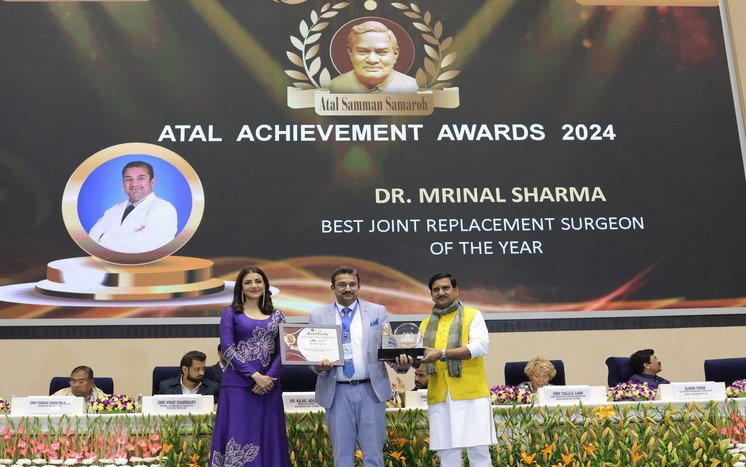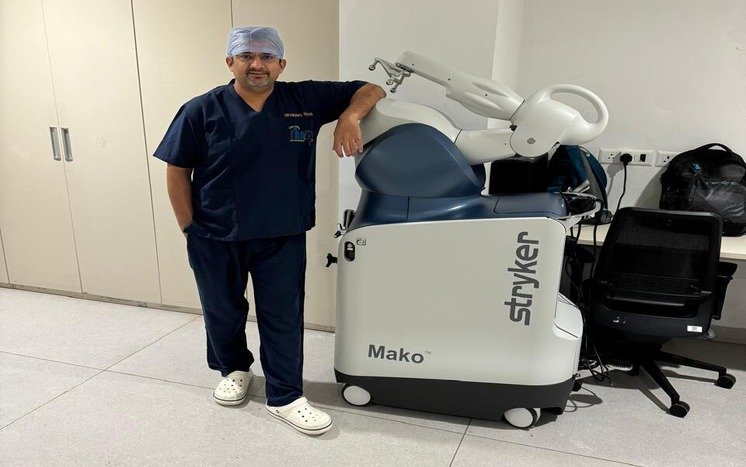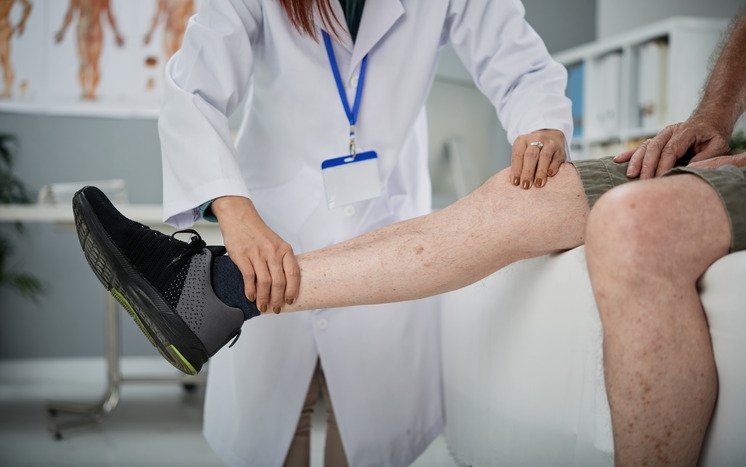
10:00am to 04:00pm (Mon to Sat) - Amrita Hospital, Faridabad
06:00pm to 08:00pm (Mon to Sat) - Arthrocare Clinic, Noida
10:00am to 04:00pm (Mon to Sat) - Amrita Hospital, Faridabad
06:00pm to 08:00pm (Mon to Sat) - Arthrocare Clinic, Noida
 May 6, 2024
May 6, 2024
In the field of orthopedic surgery, advancements in technology have revolutionized the way knee replacement surgeries are performed. Robotic-assisted knee replacement has emerged as a groundbreaking approach, offering enhanced precision and improved patient outcomes. To gain deeper insights into this innovative technique, we turn to the expertise of Dr. Mrinal Sharma, a distinguished orthopedic surgeon with extensive experience in robotic knee replacement procedures.
Meet Dr. Mrinal Sharma
Dr. Mrinal Sharma is a renowned orthopedic surgeon known for his expertise in knee and hip replacement surgeries. With a passion for embracing cutting-edge technologies, Dr. Mrinal Sharma has been at the forefront of adopting robotic-assisted techniques to optimize patient care. He is recognized for his commitment to excellence, compassionate patient care, and continuous pursuit of advancements in the field of orthopedics.
The Evolution of Knee Replacement Surgery
Traditional knee replacement surgery has long been a standard treatment for individuals suffering from severe knee arthritis or injury. However, the procedure has its limitations, particularly in achieving optimal alignment and implant positioning. This is where robotic-assisted knee replacement comes into play.
Robotic technology allows surgeons like Dr. Mrinal Sharma to plan and execute knee replacement surgeries with unprecedented precision. By integrating preoperative imaging data and real-time feedback during the procedure, robotic systems enable surgeons to customize each surgery to the unique anatomy of the patient, leading to improved outcomes and faster recovery.
Dr. Mrinal Sharma’s Perspective on Robotic Knee Replacement
According to Dr. Mrinal Sharma, the introduction of robotic technology has been a game-changer in the field of knee replacement surgery. He emphasizes the following key advantages of robotic-assisted procedures:
Challenges and Future Directions
While robotic-assisted knee replacement offers numerous benefits, Dr. Mrinal Sharma acknowledges that there are still challenges to overcome. These include the initial learning curve for surgeons, the cost of equipment, and ensuring widespread access to this advanced technology. However, he remains optimistic about the future of robotic surgery and its potential to further improve outcomes for patients with knee arthritis and other conditions.
In conclusion, Dr. Mrinal Sharma’s insights provide valuable perspective on the role of robotic technology in knee replacement surgery. By harnessing the precision and customization afforded by robotic-assisted techniques, surgeons like Dr. Mrinal Sharma are transforming the way knee arthritis is treated, offering hope and improved outcomes to patients around the world.





© 2024 Dr. Mrinal Sharma | All rights reserved. Designed and Developed by DigiTrend